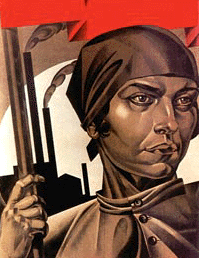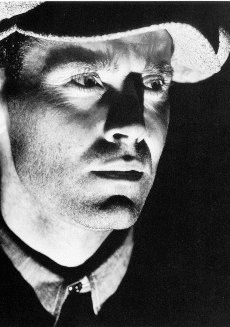
Special Topics:
Literature & Revolution
ENGL 3537 B (# 12692)COML 3090 A (# 15593)
POLS 4031 C (# 15464)
Instructor: Dr. David W. Robinson
Email: dwrob@georgiasouthern.edu

Readings and other materials
For purchase- Fyodor Gladkov, Cement (novel, Soviet, 1925)
- Mikhail Bulgakov, The Master and Margarita (novel, Soviet, 1929-1939)
- Bertolt Brecht, The Good Person of Szechuan (play, German, 1943)
- Christa Wolf, The Search for Christa T. (novel, East German, 1968)
- Maynard Solomon, ed., Marxism and Art: Essays Classic and Contemporary
- Vladimir Mayakovsky, selected poems (Soviet, 1920s)
- Bertolt Brecht, The Measures Taken (play, German, 1930)
- Christoph Hein, The Distant Lover (novel, East German, 1983)
- Heiner Müller, Mauser, The Horatier (East German, 1978)
- Karl Marx/Friedrich Engels, The Communist Manifesto, Sections I-II (BOURGEOIS AND PROLETARIANS and PROLETARIANS AND COMMUNISTS) (German, 1848)
- Bertolt Brecht, "Little Organon for the Theater" (German, 1949)
- Battleship Potemkin (Soviet, 1925; director: Sergei Eisenstein)
- The Grapes of Wrath (American, 1940; director: John Ford)
- Trail of Stones (East German, 1966; director: Frank Beyer)
- The Legend of Paul and Paula (East German, 1973; director: Heiner Carow)
- Good Bye, Lenin! (German, 2003; director: Wolfgang Becker)
- Mauser (French, 1999; director: Philippe Vincent)
- Bertolt Brecht/Hanns Eisler, The Measures Taken, (play, German, 1930)
- Bertolt Brecht/Paul Dessau, The Condemnation of Lucullus (oratorio, German, 1951)
Course Description
Twentieth century world literature was heavily influnced by radical political ideologies, with revolution in the political sphere often motivating parallel efforts in the sphere of art. While the reactionary bent of some Modernist literature is well-known, the literary embodiments of radical leftist ideology are comparatively neglected, or when noted, dismissed as hack work. While foregrounding the ideological import of the most important canonical writer of the left, Bertolt Brecht, this course will also reclaim representatives of the neglected traditions of Socialist Realism and its literary cousins. Complementing the readings will be films spanning the whole history of film to date and touching on many of the same themes as the literary readings. With supplementary theoretical selections and appropriate historical background, the course will explore the space that political utopianism shares with literary fabulation and public performance.
As noted, we will focus on a particular leftist literary/revolutionary thread, Socialist Realism. To encourage a more general application of the insights we gain from our readings, I will have each student prepare a presentation and short paper on some other revolutionary or utopian movement (socialist or otherwise) and its literary manifestations. The American civil rights movement would be an obvious choice. Another possibility would be fascism in some version. In every case, I am interested in what political imagination does with literature, and what literary imagination does with politics, when both exist side-by-side in a writer's mind.
Grading
Grading will be based on a short and long paper, a midterm, a final, and on participation in class discussions and the online class discussion forum.